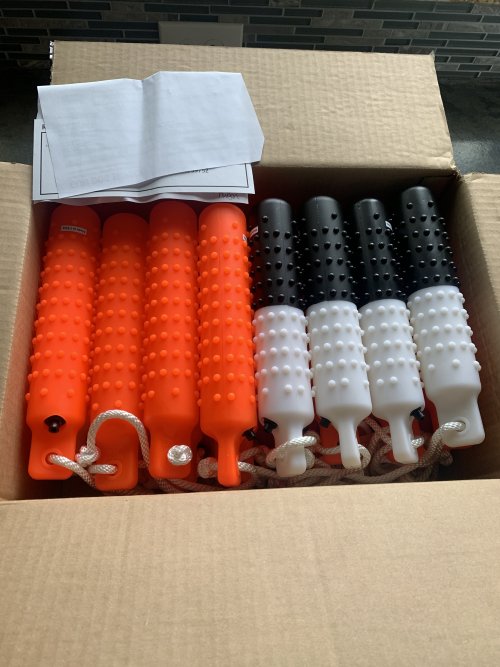AlaskaHunter
Well-known member
Retrievers are typically in their prime from age 4 - 8 years.
At that age they handle so smoothly and have all the skills from experience hunting.
I train all summer long and subtle communication is important in upper level retriever games.
Most folks don't see this communication unless they handle retrievers, especially in lining.
For example, there is a stone on the ground just in front of the lab that is in line with the 3rd memory mark.
As the handler, I do not receive the bumper until the lab's focus it in that direction.
Then the lab's eyes are focused too far right a degree or so,
as the handler I silently move my right foot forward a few inches.
When the lab's focus is directly over that stone, I confirm with "Good"
which means he focus is on the correct direction.
At that age they handle so smoothly and have all the skills from experience hunting.
I train all summer long and subtle communication is important in upper level retriever games.
Most folks don't see this communication unless they handle retrievers, especially in lining.
For example, there is a stone on the ground just in front of the lab that is in line with the 3rd memory mark.
Then the lab's eyes are focused too far right a degree or so,
as the handler I silently move my right foot forward a few inches.
When the lab's focus is directly over that stone, I confirm with "Good"
which means he focus is on the correct direction.





